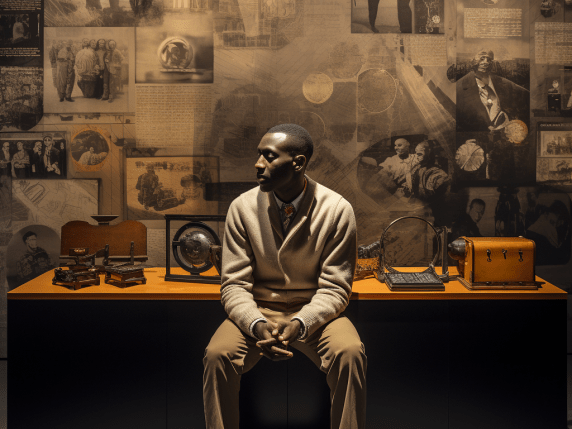
Confronting the Dark Colonial Legacy of Belgium’s Africamuseum: Making Strides towards Acknowledgment and Reconciliation
Introduction
Belgium’s Africamuseum stands as a vivid reminder of the country’s colonial past in Africa. While this institution once celebrated the exploits and achievements of the Belgian colonial era, it has gradually embarked on a journey of self-reflection and transformation. In this article, we will delve into the somber colonial history associated with the Africamuseum, explore the slow progress in confronting this dark past, and shed light on the steps being taken to address and reconcile with this complex heritage.
The Dark Colonial Legacy
The Africamuseum was established in Tervuren, Belgium, in 1910, during the height of the colonial era. Its predecessors, the Belgian Institute for Colonial Sciences and the International Colonial Exhibition, laid the foundation for an institution that would devoutly celebrate Belgium’s colonial exploits. The museum’s initial purpose was to showcase Africa’s cultures and resources, often with a Eurocentric lens that distorted the true nature of African societies.
However, as times have changed and post-colonial narratives have emerged, the role of the Africamuseum has drastically shifted. Previously uncritical displays and narratives are now being scrutinized, challenging the ethics and values upon which the museum was established.
Confronting the Colonial Past
Acknowledging the troubling aspects of the Africamuseum’s history, the institution has made deliberate strides toward confronting its colonial past. In recent years, renovations have taken place to revamp exhibition spaces, reinterpret collections, and incorporate critical voices that offer a nuanced understanding of colonial history.
The museum actively engages with communities, scholars, and experts from Africa and Europe to establish an open dialogue and education environment. This collaborative approach ensures that diverse perspectives are represented, fostering a more accurate portrayal of Africa’s rich and complex heritage.
Challenges & Progress
Challenges faced by the Africamuseum in confronting its dark colonial past are manifold. Overcoming deeply ingrained biases and Eurocentric narratives within the institution’s framework required a significant overhaul. Furthermore, critiques often arise regarding the repatriation of looted art and artifacts, demanding sincere efforts toward restitution.
That said, the museum has taken commendable steps to address these concerns. By implementing comprehensive educational programs and participatory projects, the Africamuseum strives to ensure that the lessons learned from its colonial history are disseminated, fostering critical thinking, cultural exchange, and intercultural dialogue.
The Road to Reconciliation
The road to reconciliation is a long and arduous one, but the Africamuseum is committed to this transformative journey. The institution aims to create a space that promotes dialogue among people from diverse backgrounds by prioritizing collaboration, inclusivity, and diversity. The museum seeks to build meaningful bridges between its colonial past and a future rooted in mutual respect and understanding through temporary exhibitions, public discussions, and community-based initiatives.
Conclusion: A Journey Towards Reckoning and Renewal
In summary, Belgium’s Africamuseum has embarked on a profound journey of acknowledging and addressing its dark colonial past. By embracing the complexities of its history, engaging in open dialogue, and actively involving diverse voices, the museum has taken significant strides toward reconciliation.
Looking ahead, the Africamuseum’s commitment to fostering understanding, remembrance, and a collective vision for the future is an example for other institutions grappling with their colonial legacies. By confronting and reconciling with the past, the Africamuseum paves the way for a more inclusive future and becomes a beacon of hope for shaping a more just and equitable world.
References:
- The Conversation: “Belgium’s Africamuseum has a dark colonial past. It’s making slow progress in confronting this history” – Link
